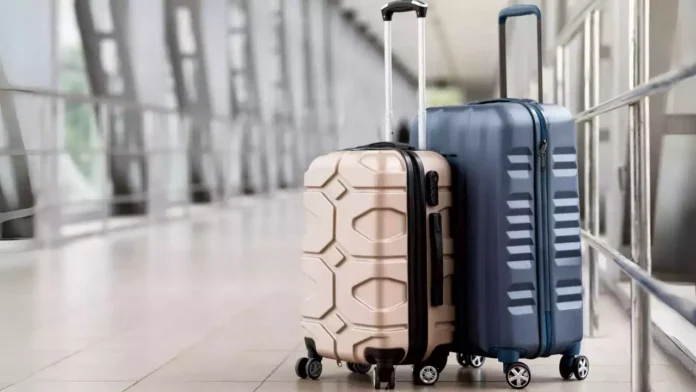Samsonite, Safari, and VIP Industries, renowned luggage manufacturers, experienced a notable decrease in their growth rates during the March quarter. This decline can be attributed to the comparably high base set last year, coupled with a subdued wedding and travel season this year.
Samsonite’s Indian operations experienced a 10% decline year-on-year during the quarter, a notable shift from the 108% growth observed a year earlier. Meanwhile, Safari witnessed a drop in its growth rate to 21% from the previous year’s 57%. Similarly, VIP Industries saw its sales growth moderate to 14% from 26% a year ago. Despite this, most companies in the sector anticipate continued growth, albeit not at the same accelerated pace witnessed immediately following the Covid-19 pandemic.
Jai Krishnan, CEO of Samsonite South Asia, remarked, “The pandemic has fundamentally reshaped travel patterns and frequency. The performance this quarter represents a transient dip primarily driven by a high baseline, given our business has doubled over the past three years, a pace that isn’t sustainable every quarter. However, our optimism persists that the sector won’t encounter a long-term slowdown, although the growth rate may fluctuate.”
Continue Exploring: Safari Industries raises INR 229 Crore in funding from Lighthouse’s AIF, eyes expansion in Indian luggage market
During its global earnings call, Samsonite, the largest luggage manufacturer worldwide based in the US, noted that its Indian operations might show a decrease compared to past performance levels, which witnessed a doubling of sales. However, it anticipates a mid-single-digit growth trajectory due to the high baseline.
Reza Taleghani, the Chief Financial Officer at Samsonite, informed analysts, “In India, we encounter robust competition from strong players occupying the second and third positions. There’s a noticeable trend of promotional activities in the Indian market, with competitors also engaging in discounting practices. Consequently, there’s a significant accumulation of inventory. Overall, the Indian market is characterized by a proliferation of bags.”
In 2022, India surpassed China to become Samsonite’s largest market worldwide. However, a year later, China reclaimed the top position after relaxing travel restrictions.
The Indian luggage industry is valued at just under INR 50,000 crore, with organized players representing approximately a quarter of the market. VIP Industries, Samsonite, and Safari collectively dominate almost 90% of the branded segment. Over recent years, the sector has witnessed consistent growth, driven by evolving lifestyles, an expanding middle class, and the accessibility of affordable air travel. However, growth came to a standstill during the initial year of the pandemic.
Neetu Kashiramka, the Managing Director at VIP Industries, shared with analysts, “Our confidence in achieving double-digit growth for the year stems from several factors. Firstly, we believe that by executing our strategies effectively, we can enhance our market share. Additionally, considering industry forecasts suggesting a 12% growth rate, we aim to surpass this by 1% or 2%, hence projecting double-digit growth. Moreover, the positive performance indicators from the travel sector, as evidenced by airline and hotel industry data, further bolster our optimism.”
Continue Exploring: D2C luggage brand Mokobara secures $12 million in funding from Peak XV Partners, existing investors
Consumers are increasingly favoring hard luggage due to its enhanced aesthetics and durability. Over the last five fiscal years, the market share of hard luggage has surged from 33% to 55%. According to a recent report by RedSeer, the phenomenon of “revenge tourism” is motivating consumers to travel more and invest in high-quality luggage. Brands are responding with competitive pricing strategies to stimulate sales, while a government reduction in goods and services tax has made branded luggage more affordable, reducing the price disparity between branded and unbranded options.





